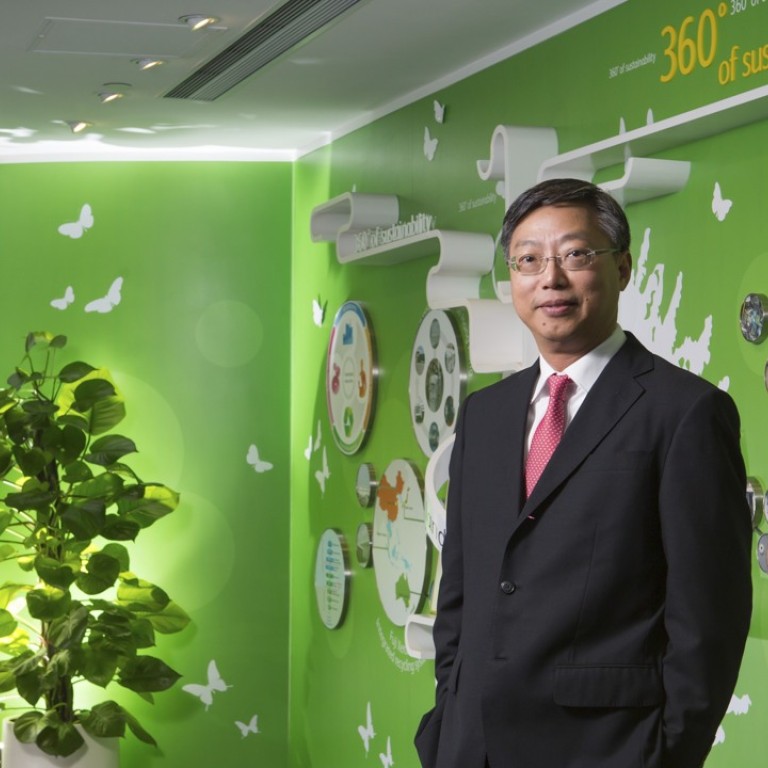
New | Fuji Xerox to ramp up ‘green’ services in bid to help Hong Kong offices reduce carbon footprint
Fuji Xerox, one of the world’s largest suppliers of office copiers and printers, plans to ratchet up its information technology services business in Hong Kong as more companies eye increased efficiency with new “green” office processes.
“We expect the ratio of our services business to total revenue in the city to reach 50 per cent this year, and further grow next year,” Fuji Xerox (Hong Kong) managing director Herbert Hui said.
Hui said the company was focused on enabling more companies in the city to help reduce their carbon footprint through initiatives like managed printing services, energy tracking systems and recycling of office printers.
Since 2013, some of the big guns of the office automation industry have targeted Hong Kong’s 300,000 small and medium-sized enterprises, which make up about 98 per cent of business establishments in the city, with packaged hardware, software and services.
According to the Hong Kong General Chamber of Small and Medium Business, the availability of various offerings from the big office-automation brands was helpful for SMEs to make comparisons of relevant solutions they would not otherwise know about.
Fuji Xerox, a joint venture that is 75 per cent-owned by Japan’s Fujifilm Holdings and 25 per cent by United States-based Xerox, launched this week its sustainability management service, which provides a customised online “dashboard’ for companies to measure and analyse their consumption of energy and paper.
Another offering, called managed account payable services, delivers a process for companies to streamline their invoice processing.
Fuji Xerox customers in Hong Kong now also have a more efficient channel to recycle their printers via the company’s drop-in service and recycling centre in Tsuen Wan.
Since 2004, the company has implemented its own zero-landfill programme. It collects used consumable items from markets in Asia which are then broken down into 88 different categories, including iron, copper, plastic and glass, at its recycling facility in Thailand.
Hui said Hong Kong is gradually moving towards becoming a low-carbon city, based on recent public initiatives like the establishment of an electrical waste, electronic equipment treatment and recycling facility at the EcoPark in Tuen Mun.
The city’s Environment Bureau last year released a report that summarised measures undertaken by the government and the private sector to mitigate against climate change.
An amendment made last December in the Environmental, Social and Governance disclosure requirements by the Hong Kong Exchanges & Clearing, which runs the city’s stock market, has prompted more companies to invest in sustainability initiatives at their offices.
Research firm Gartner estimated that overall spending on information technology services in Hong Kong reached HK$28.83 billion last year, up from HK$27.54 billion in 2014.

